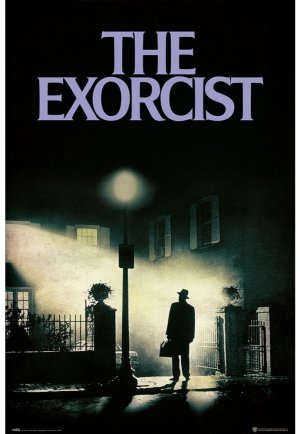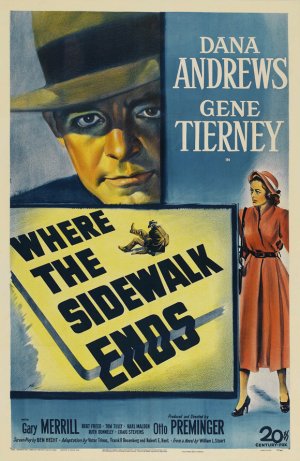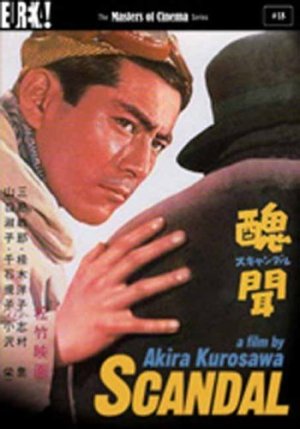The Official Movie Thread
- Thread starter Manic Ferocity
- Start date
You are using an out of date browser. It may not display this or other websites correctly.
You should upgrade or use an alternative browser.
You should upgrade or use an alternative browser.
CiG
Gonna Mow You Down
RadicalThrasher
Active Member
Basically another take on the property that full moon created. Like a reboot or reimagining or something. I liked it, thought it was pretty awesomeThe fucked up thing is I've only seen The Littlest Reich.
CiG
Gonna Mow You Down
Cronopio
Glorious Imperator
Vegard Pompey
ALLY TO GOOD, NIGHTMARE TO YOU

- William FriedkinEverything in the Exorcist film is intentional. I had no idea what the effect of any of this stuff would be, but I can tell you that it's all planned. This is as planned a film as I've ever made. There are a lot of things in almost every film that come about through improvisation or through luck. A large part of the chase scene in The French Connection actually "just happened". But there's nothing that "just happened" in The Exorcist. Everything is planned.
Spoilers follow.
I've seen this movie before, sometime when I was a kid. I remember it being a movie about two priests performing an exorcism on a young girl possessed by the devil. Rewatching it now, in the form of the 132 minute director's cut, I discover that part doesn't start until 100 minutes in. It's preceded by material that isn't obviously purposeful. An archeological dig in Iraq. A single mother seeking a cure for her daughter's unusual illness. A priest dealing with the loss of his mother and a crisis of faith. It's a weirdly cozy watch, despite the undercurrent of dread. It's a slow burn, but never tedious. You can always track your proximity to the climactic exorcism scene by the steady escalation of Regan's behavior.
All the setup comes together in a not totally obvious way. I think the greatest effect of it is simply to provide a baseline mundane reality against which the demonic possession scenes stand in stark contrast. Father Merrin's arrival is both climactic and anticlimactic. After an awesome exorcism scene, he has a heart attack offscren and dies. Somehow, it has the effect for me of making his brief presence in the film even more portentous and mythical.
I watched this movie a couple days ago and I can't get it out of my head. There are mysteries to the film that cannot be dispelled simply by reading about its production, because these elements were included by pure intuition. The climactic exorcism scene is a spellbinding triumph of acting, lighting and special effects. It didn't occur to me while watching that Friedkin had a refrigeration unit installed so the actors' breath would be visible, but of course he did. This is one of those movies where I could gladly soak up every tidbit about its development, from the miraculous casting of industry nobodies that completely nailed their roles to the numerous incidents that plagued its production, but above all I could wonder foverer about the world onscreen, that world where demons are real and catholic priests are film noir detectives, meeting in seedy bars and emerging from cabs at night silhouetted against streetlights.
I think Friedkin is becoming one of my favorite directors, and this might've dethroned To Live and Die in L.A. as my favorite of his. I'll get on Cruising, Bug and Killer Joe ASAP and I'm eager to discover if there are any hidden gems among his more maligned films.
no country for old wainds
Active Member
- Nov 23, 2002
- 26,865
- 9,730
- 113
if twitter is to be believed there's severalI'm eager to discover if there are any hidden gems among his more maligned films.
i recommend trying the sequels btw, 2 and 3 are both cult classics at this point.
Vegard Pompey
ALLY TO GOOD, NIGHTMARE TO YOU
I want to watch 3 as well as Blatty's other film, The Ninth Configuration, but I thought 2 was only known for being really bad?
no country for old wainds
Active Member
- Nov 23, 2002
- 26,865
- 9,730
- 113
traditionally yes but it has plenty of defenders: https://letterboxd.com/tomnixon/friends/film/exorcist-ii-the-heretic/by/entry-rating/
i've only seen 3 and not 2 though, i'm quite fond of 3. should rewatch the first at some point 'cause i was young when i saw it too.
i've only seen 3 and not 2 though, i'm quite fond of 3. should rewatch the first at some point 'cause i was young when i saw it too.
CiG
Gonna Mow You Down
Bloopy
Active Member
I find Exorcist II offensive just for existing. They should've left the Regan character out of it and messed up a new kid's life or something. Maybe watch Possessed (2000) instead - quite funny at times.
Einherjar86
Active Member
Finally watched The Outwaters on Screambox, dir. Robbie Banfitch, found footage horror (maybe ecohorror?). First 45 minutes move slowly from intimate footage of friends/family coming together to film a music video in the Mojave, to gentle but unsettling flourishes of ecohorror (weird atmospheric thunder at night, noises from underground, the bleakness of the desert landscape), to a full backflip into hell, at which point all aesthetic and viewer-friendly commitments are tossed out the window. The final hour plus of the film is very hard to watch--not because of content but because of style. Banfitch makes it extremely difficult to tell what's happening onscreen, which a lot of people will probably find frustrating; and we encounter the perennial problem with found footage films, i.e. how in the living fuck does the character manage to continue filming? I'm actually willing to forgive The Outwaters this formal challenge, if only because the extreme subversion that seems to have happened to reality itself suggests that perhaps continuing to film is all the protagonist (played by Banfitch) has left to hold onto. Oh, and the camera does have a flashlight, without which the nighttime scenes in the Mojave would be pretty fucking dark.
At any rate, the film works despite its flaws, and it has some pretty gruesome moments. Not sure it's a satisfying movie, but it's an interesting one.
At any rate, the film works despite its flaws, and it has some pretty gruesome moments. Not sure it's a satisfying movie, but it's an interesting one.
Vegard Pompey
ALLY TO GOOD, NIGHTMARE TO YOU

Contemplating a new expression of autism; watching 5-10 movies from every year starting from 1950. Started off with this very solid noir by the guy who played Mr. Freeze in the Adam West Batman series. Kind of makes me want to go in the other direction and check out some of his 40s work like Laura and Fallen Angel.
no country for old wainds
Active Member
- Nov 23, 2002
- 26,865
- 9,730
- 113
i haven't seen that one but preminger is such a mixed bag for me. laura bored the shit out of me tbh despite being proto-lynch or whatever, and anatomy of a murder disappointed me a bit given it's usually considered the best courtroom drama ever and stars my boy ben gazzara. on the other hand, i really liked forever amber (proto-barry lyndon) and stella dallas (really sophisticated and emotionally charged love triangle melodrama with the mighty joan crawford).
night & the city would be my top rec for you from 1950 btw. gun crazy and the gunfighter also essential genre movies.
night & the city would be my top rec for you from 1950 btw. gun crazy and the gunfighter also essential genre movies.
CiG
Gonna Mow You Down
I kinda wanna do this now. Fuck I guess I am autistic.Contemplating a new expression of autism; watching 5-10 movies from every year starting from 1950.
Bloopy
Active Member
Vegard Pompey
ALLY TO GOOD, NIGHTMARE TO YOU
I kinda wanna do this now. Fuck I guess I am autistic.
What's the starting year for the yearly poll threads? Will be interesting to look at those when I get to applicable years.
Anyway, the journey continues with...

Minor Kurosawa by all accounts, including the director's own. The story is a bagatelle; two celebrities sue a newspaper over the publishing of a photo that implies romantic involvement. Midway through the movie we meet a down-on-his-luck lawyer and his tubercular daughter and the movie loses the thread completely and becomes an incredibly cozy slice-of-life thing in a slowly modernizing postwar Japan. At one point Toshiro Mifune straps a pine tree to his motorcycle and the movie briefly becomes the best Christmas movie. This is the most unfocused I've ever seen Kurosawa at and I... kinda loved it? Watching it felt like briefly inhabiting a lost time and place. The Plot makes an unfortunate third act return in the form of a terrible courtroom drama but it's not enough to stop me from calling this my favorite Kurosawa movie to come out in 1950.
no country for old wainds
Active Member
- Nov 23, 2002
- 26,865
- 9,730
- 113
i thought that was a joke then remembered rashomon was 1950 lol
we haven't really done 50s threads, understandable but also a shame 'cause it's definitely a candidate for the greatest decade (although i'd probably pick the 70s if pushed)
we haven't really done 50s threads, understandable but also a shame 'cause it's definitely a candidate for the greatest decade (although i'd probably pick the 70s if pushed)
CiG
Gonna Mow You Down
I don't think we've even done a 60's thread have we?
I'm severely lacking in the 50's, which is why I didn't participate in the RYM poll for that decade.
I'm severely lacking in the 50's, which is why I didn't participate in the RYM poll for that decade.
Similar threads
- Replies
- 20
- Views
- 2K
M

